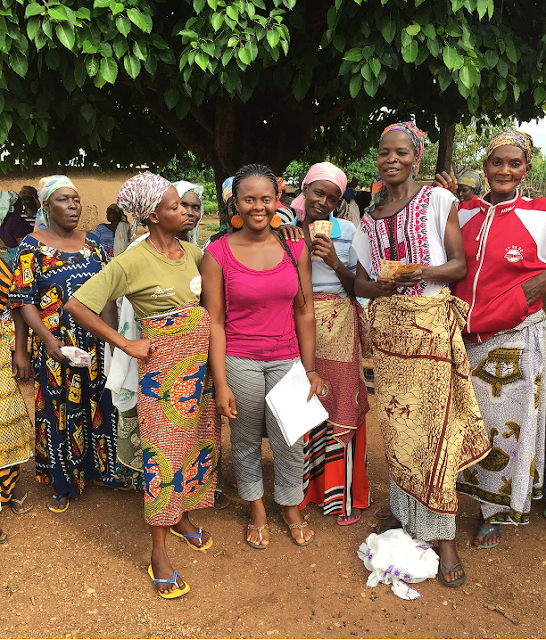By Gloria Makafui Dovoh, 1st year MDP
student
In my first blog, I made mention of the
usefulness of considering both the context and culture of a community in
understanding cultural practices as well as building relationships and having
an open mind. During my field placement
with the Regional Advisory and Information Network Systems (RAINS), I realized
these tools early enough to assist with my twelve-week journey. At the end of the three months experience in
the field, I have no doubt this placement was a good fit. I have personally
enjoyed the journey of growth during this placement.
 |
| Gloria (R) with a student during a project evaluation session |
Even though I come from
Ghana (Southern Ghana), I have been blinded to the diversity of cultures in the
Northern part of the country all this while. The Northern part of Ghana, where
RAINS is located has a mind-blowing diversity in languages, dances, cuisine and
dressing. I was fortunately gifted with
a beautiful Northern outfit called the “smock” at the end of my placement.
Aside from the organization’s work with
rural communities in Northern Ghana, RAINS manages a day crèche to support
working mothers, both staff and from the general public, which they seek to
expand in future. The saying “Practice what you preach” is very evident with
the organization. Staff also engage in Village Savings and Loans Association
(VSLA), (a livelihood intervention for a group of people who collectively
support a structured process of saving money and collecting loans at a local
level) to have practical experience of the saving and loans framework that has
been adopted in many rural communities to build reliable sources of capital for
women’s small businesses.
I am thankful to the Regional Advisory and
Information Network Systems (RAINS) and Master’s in Development Practice:
Indigenous Development (MDP), the University of Winnipeg for this adventurous
and meaningful experience. I have learnt a lot and I am grateful for this
opportunity of a lifetime. I had the opportunity of improving both my
professional and personal skills. In the nutshell, I experienced hands-on learning
and training in a field setting, an experience I have been looking forward to
since the inception of my journey to the MDP.
 |
| Group photo on Gloria's last day in placement |










